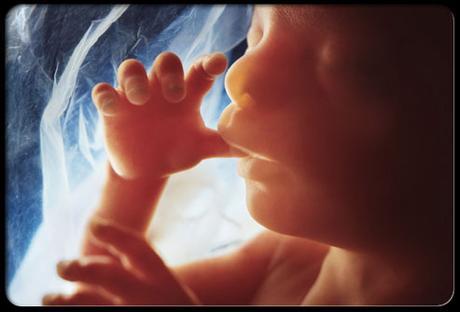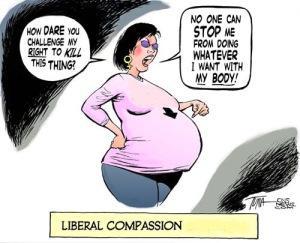
LifeNews.com: On May 12, 2015, David A. Prentice, Ph.D., Vice President and Research Director of the Charlotte Lozier Institute, was invited to speak on the science of fetal pain on Point of View radio talk show. On May 13, 2015 the United States House of Representatives passed the Pain-Capable Unborn Child Protection Act.
Ms. Penna Dexter: We want to talk about fetal pain [...] because this bill is so much stronger. It Ms. Dexter: And that is because [of] their development? actually bans abortions after twenty weeks, and that's because - I don't think there's a doubt now that a fetus can feel pain at 20 weeks?Dr. David Prentice: The science is pretty conclusive at this point. And there are always going to be people, especially those in favor of abortion, who will say, "Oh that really doesn't happen, and they'll throw up a smokescreen. And what they usually do is they refer to an old study back in 2005 that was published actually by people who had associations with Planned Parenthood and other abortion providers.
But the real science - and there's some new things in fact, that have come out in the last few months - but the science pretty conclusively demonstrates: Young babies still in the womb at 20 weeks after conception, and probably even earlier, do indeed feel pain, and in fact, may feel more intense pain than a newborn or an adult
Dr. Prentice: Exactly, they have a higher density of nerve receptors. Like you said, your skin is not very thick at that point, but there is another aspect.
There are certain pathways that sort of tone down pain. If I hit my thumb with a hammer, I'm going to feel it because the pain sensation goes up to my brain, but there is also a return path to try and tone that down. That doesn't even start to develop until about the time that you're born, so you don't get this dampening of the pain.
In fact, there was a study done, reported just a couple weeks ago, where they were looking at pain experience of newborns - just between one and six or seven days old and adults, and the headlines were, "Babies feel pain like adults and they feel it more intensely."
Ms. Dexter: So one of the arguments that's made is that at twenty weeks the baby doesn't have a mature cerebral cortex. What do you say to that argument?The study actually looked at regions of the brain associated with pain using very sophisticated technology and comparing not really pain, just sort of like you'd take the end of a pencil and press it against the bottom of this baby's foot, a little bit of pressure, a little sensation there.
A lot of the babies even slept through this whole procedure, but they were in this functional MRI machine, very sophisticated technology, and then they would do the same thing to adults to see how they responded.
Eighteen of the twenty pain regions lit up in babies, eighteen of the twenty that are the same as adults, and at four times as sensitive. So again, you don't develop this feedback loop to shut down pain until right about that time, and it takes even several months after birth for it to start to mature.
Now, wind back the clock to five months after conception, you're a little past halfway through development in moms womb. You don't even have that feedback loop at all; it's not starting until months later in your life - and now the pain is very intense. We don't know exactly how much, but much more intense for the small amount that you might feel as an adult.
Ms. Dexter: That argument that no mature cerebral cortex, and that's necessary for perception of pain, that's one of your smokescreen arguments that you've been talking about?
Dr. Prentice: Well, if your listeners aren't up to speed on brain anatomy, the cortex is sort of the outermost part that is, in terms of your conscious thoughts and so on, it's the last part of the brain to develop.
There is indication that some of that neuronal material in your brain is already present, starting to be formed certainly by twenty weeks after conception, but it also turns out that that's not the most important part of your brain for pain perception.
There's another deeper layer that forms early in your brain called the thalamus, deep inside your brain. It forms even earlier in development - probably about 8 to 12 weeks is when you start to see it forming, and those nerve tracks already connect to the thalamus by the time you are 20 weeks after conception, or after fertilization.
In fact, there are individuals who are born without the cerebral cortex, and they feel pain. We know that for a fact.
So, you don't need that cortical layer to actually feel pain. What you need are these deeper parts of the brain and simply the neural tracks for sensation. And those are definitely formed, intact, and responding by twenty weeks after conception.
Dr. Prentice: It is definitely a smokescreen.
Read the rest here. To listen to the audio: http://pointofview.net/show/tuesday-may-12-2015/?listen_now=1
DCG

